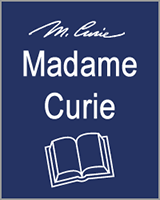| Cellular and Biochemical Mechanisms |
| Decreased drug accumulation |
| | Decreased drug influx |
| | Increased drug efflux |
| | Altered intracellular drug trafficking |
| Increased inactivation of drug or toxic intermediate |
| Increased repair of or tolerance to drug-induced damage to |
| | DNA |
| | Protein |
| | Membranes |
| Decreased drug activation |
| Altered drug targets (quantitatively or qualitatively) |
| Altered co-factor or metabolite levels |
| Altered downstream effectors of cytotoxicity |
| Altered signaling pathway and/or apoptotic responses to drug insult |
| | Altered gene expression |
| | DNA mutation, amplification, or deletion |
| | Altered transcription, posttranscription processing, or translation |
| | Altered stability of macromolecules |
|
In Vivo Mechanisms
|
| Pharmacological and anatomic drug barriers (tumor sanctuaries) |
| Host-drug interactions |
| | Increased drug inactivation by normal tissues |
| | Decreased drug activation by normal tissues |
| | Relatively increased normal tissue drug sensitivity (toxicity) |
